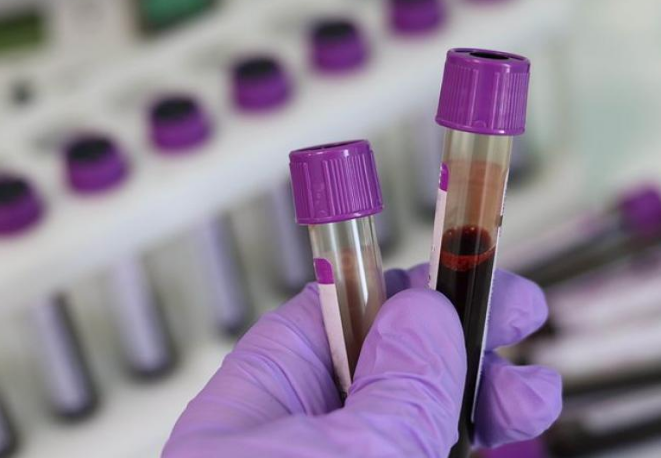
Liquid biopsy has attracted a surge of companies that are trying to change the way cancer is detected and monitored. But the benefits of this new type of technology can - and should - seep into other disease categories.
Redwood City, CA-based Karius, for example, is leveraging liquid biopsy technology to give doctors an upper hand on difficult-to-diagnose infectious diseases. New findings show the potential clinical utility of its the Karius Test to detect pathogens causing serious infections using a simple blood draw. This includes pathogens that are otherwise difficult to culture or identify without an invasive biopsy.
"Rigorous clinical studies of the Karius Test continue to show its ability to identify and quantify pathogens from a single blood test," said Mickey Kertesz, the company's CEO and co-founder. "In some of the studies, this was the first time that a non-invasive method was able to identify pathogens that were previously only detectable with invasive biopsies."
The inspiration for the company originated in 2014 while Kertesz and other researchers were at Stanford University studying cell-free DNA signals from organ transplant patients. It was through that work that the researchers figured out there was a weak signal coming from microbes.
"And the question we asked was 'can this signal be enhanced and used, potentially for diagnostic purposes in infectious disease'," Kertesz told MD+DI during a 2017 interview.
The Karius Test uses a combination of machine learning, genomics algorithms, and next-generation sequencing to enable the broad and rapid detection of more than 1,250 pathogens. Using a standard blood draw, the test identifies cell-free DNA fragments left by bacteria, viruses, fungi, and other eukaryotic pathogens in a patient's bloodstream, when living organisms are no longer detectable in the blood. The company said it's the first to put microbial cell-free DNA analysis data into the hands of clinicians, making it commercially available through its laboratory service. The company can usually provide a diagnosis within one business day of getting a blood sample.
Below are the five studies Karius presented at the recent American Society for Microbiology's Microbe 2019 conference in San Francisco, CA.
1. Detection of Bartonella species in Culture-Negative Endocarditis using the Karius Test, a Plasma Next-Generation Sequencing test for Pathogen Detection
Bartonella species are fastidious, gram-negative bacteria that can cause culture-negative endocarditis, lymphadenitis, visceral abscesses, and fever of unknown origin. Diagnosis frequently requires sampling of infected tissue. Asim Ahmed, MD, Karius' medical director, presented the test's ability to identify Bartonella species in culture-negative endocarditis and discussed how the quantitative aspect of the test may offer a means to monitor patient response to therapy.
2. Next-Generation Sequencing of Pathogen Cell-free DNA in Plasma Reveals Nocardia Species Diversity in Clinical Infections
Nocardia can cause pulmonary, brain, skin, or disseminated infections in immunocompromised and immunocompetent patients. Nocardia is difficult to culture and often requires invasive methods for diagnosis. Ahmed presented new findings that highlighted the Karius Test's ability to uncover new insights on genus complexity of Nocardiaspecies, which can potentially help inform treatment decisions.
3. Sequencing of Plasma Cell-Free DNA for Pathogen Detection in Prosthetic Joint Infections
Currently, identification of pathogens causing prosthetic joint infections typically requires testing tissue directly from the site. In an evaluation of the Karius Test's ability to detect pathogens in prosthetic joint infections, David Danko of Weill Cornell Medicine presented how the Karius Test was able to identify pathogens in prosthetic joint infection cases. These findings highlight the potential of the Karius Test to serve as a non-invasive alternative to detect deep infections, the company noted.
4. Evaluation of Karius Plasma Next-Generation Sequencing of Cell-free Pathogen DNA to Detect and Quantitate CMV, EBV, and BKV
Tim Blauwkamp, PhD, the company's chief scientific officer, presented findings that show a high correlation between the Karius Test and industry-standard quantitative PCRs for Cytomegalovirus (CMV), Epstein-Barr Virus (EBV), and BK polyomavirus (BKV). These viruses can cause serious complications for immunocompromised patients. The findings highlight the test's ability to simultaneously detect and quantify CMV, EBV, and BKV.
5. Improving the Clinical Specificity of the Unbiased Karius Test via Literature Mining
Lily Blair, PhD, the company's investigative computational biologist, presented the benefits of applying artificial intelligence methods to increase the utility of diagnostic tests for infectious diseases. Using machine learning algorithms, the Karius team processed more than 27 million abstracts from PubMed to compute how likely a microbe was to cause sepsis. Significant clinical specificity improvements are demonstrated by applying this method to the SEP-SEQ study, a study that validated the performance of the Karius Test in 350 patients with suspected sepsis recently published in Nature Microbiology.






 Go back
Go back
